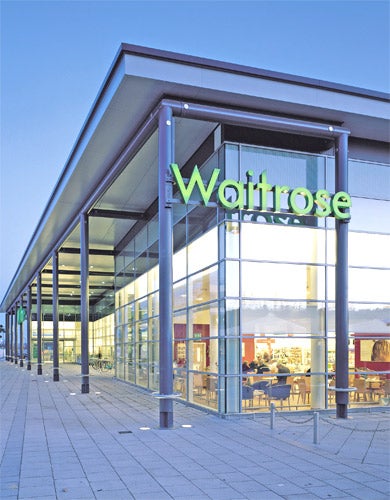Waitrose and Tesco sold leeks picked by 'slaves', court told

A gang made £10m over four years by recruiting migrant workers and treating them as "slaves" to pick leeks which were then sold to major British supermarkets, a court was told yesterday.
The Eastern European labourers were allegedly kept in "inhuman" conditions and physically assaulted while harvesting produce destined for Waitrose and Tesco in fields across Lincolnshire, Nottinghamshire and Cambridgeshire.
A group of five men and two women are standing trial. Gurdip Singh Somal, his wife Manjinder Kaur Somal and their nephew Jujhar Singh, together with Santokh Singh Nizzar, Varinder Singh, Fateh Singh Bal and Ania Jemiola all deny two charges of carrying out the crime between December 2004 and November 2008. Mr and Mrs Somal, Jujhar Singh and Jemiola also deny conspiracy to exploit by arranging the arrival of the migrants in the UK, while all defendants except Jemiola deny conspiracy to exploit by arranging travel within the UK. They were arrested by police and other authorities in November 2008 under Operation Ruby, which specifically targeted the exploitation of migrant workers.
Jonathan Kirk QC, for the prosecution, told the court that Mr Somal was the ringleader in a highly profitable operation run through his recruitment company, A14 Vehicle Hire, which provided farmers with agricultural workers from Poland, Romania, Hungary, Slovakia and Slovenia and other countries in Eastern Europe.
Mr Kirk said that the victims had been promised good wages and accommodation but were instead placed in "dirty, unsafe and in some cases unfit for human habitation". One case that was cited involved more than 20 workers packed into a three-bedroom terraced house. The building had just one toilet, which did not work.
They were taken to the fields in similarly overcrowded minibuses – some of the journeys lasting four or five hours – where they were expected to work as long as 12 or 13 hours.
They were made to work at a "relentless pace" without protective equipment, often cutting themselves to the bone with sharp knives and being hit by a harvesting machine. One witness was said to have almost severed a finger. Anyone who screamed in pain was told they would be sacked if they did not keep up the pace by a driver who laughed at them and yelled "faster, faster".
Mr Kirk said experiences like these led the workers to tell the investigation they had been treated like "animals" and "slaves". And while a few left, Mr Kirk said many believed they could not risk doing so as they would be "cut adrift and left homeless in a foreign country". A number of their passports had been taken by the employers.
Provisions by the supermarkets were held as insufficient to prevent the exploitation. "There were a few visits to the field by representatives of Tesco," said Mr Kirk. "Regrettably, these were infrequent and by prior arrangement."
Mr Kirk added: "In bringing this case, the prosecution fully acknowledges that farming labour is not easy. It is physical and often tough. We're not suggesting that migrant workers should have been given cushy jobs or put up in luxury accommodation. They came here to work and to work hard. They were vulnerable and they were exploited in a way that these defendants could never have got away with if these workers had been British." The case continues.
